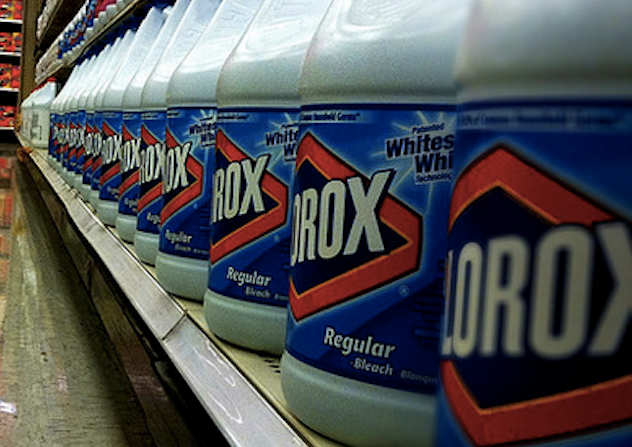Grocery Chain Sues Clorox For Refusing To Sell Bulk-Pack Products
Woodman’s Food Market, a Wisconsin-based supermarket chain, is going up against one the nation’s largest producers of household products, accusing Clorox of promoting anticompetitive practices and violating federal law by no longer allowing Woodman’s to sell bulk-packs of Clorox products to consumers.
The Wisconsin State Journal reports that Woodman’s filed the lawsuit in U.S. District Court in Madison earlier this week claiming that Clorox’s new policy – which only allows members-only warehouse stores to sell large packs of products – is a violation of the Robinson-Patman Act.
The Act, which was created in 1936, prohibits anti-competitive practices including price discrimination by producers of products.
According to the complaint [PDF], officials with Woodman’s say a representative from Clorox informed them that the company had created a “Differentiated Products Offering” and that the grocery store – which operates like a warehouse store – would be lumped in with other general market retailers, losing the ability to sell large quantity packs of products and, thus, losing business.
Officials with Clorox allegedly told Woodman’s the change was meant to simplify its market strategy, streamline its operations, offer customers differentiated products and create the “right assortment” of sizes and brands for different retailers based on their shoppers.
However, Woodman’s claims none of those justifications address the prohibition against discrimination in price, discounts, allowances or promotional services between different purchasers of commodities of like grade and quality.
Previously, Woodman’s says it spent hundreds of thousands of dollars each year to provide large packs of Clorox products to its customers.
Products included 192-count Glad Freezer quart bags, 112-count Glad Freezer gallon bags, 460-count Glad Food Storage Zipper Sandwich bags, 42-pound Scoop Away Complete Kitty Litter, 2-40 ounce Hidden Valley Ranch Dressing containers and more.
Under its new policy Clorox says that Woodman’s would be able to purchase smaller packages of products containing the identical grade and quality of all the previously sold products.
But that’s not enough for Woodman’s who says those products come at a significantly higher cost to the store and don’t meet the need of its customer base.
Officials with the store, which has 15 locations in Wisconsin and Illinois, say it operates the largest grocery stores in the world – averaging in excess of over 235,000 square feet per store; a size that puts it in line with many members-only warehouse stores.
“Woodman’s strives to offer its customers the lowest price on the products it sells, it has become the grocer of choice for those purchasing groceries on a budget,” the complaint reads. “Because of the large size of its stores, Woodman’s competes directly for retail customers with the two largest warehouse retailers, Sam’s Club and Costco.”
The complaint alleges that by placing Woodman’s in a different channel than its two largest competitors – Sam’s Club and Costco – Clorox has created an anticompetitive climate for the grocer.
“Without competition from Woodman’s, Sam’s Club and Costco will be able to raise their prices on large pack items,” the complaint reads.
Woodman’s requested that it be allowed to continue purchasing the special large packs, but Clorox denied the request, reiterating its new stance that only Costco, Sam’s Club and BJ’s could receive the large packages in the future.
The lawsuit seeks a ruling to declare there is no basis, under the Robinson-Patman Act, for Clorox to place Woodman’s in a channel separate from competitors and that the manufacturer provide the company with the same discounts and promotions afforded to its warehouse competitors.
Officials with Clorox tell the State Journal that Woodman’s lawsuit has no merit and the company intends to vigorously defend its new policy.
Woodman’s sues Clorox for pricing discrimination [Wisconsin State Journal]
Want more consumer news? Visit our parent organization, Consumer Reports, for the latest on scams, recalls, and other consumer issues.


